.jpg&)
Swimming Pool Chemicals 101
Yes! Your backyard swimming pool is finally ready!
You had been eagerly waiting for this very moment! We bet that you can’t wait for your first dive, or your opening pool party with friends and family! Awesome!
But first… the basics! Your brand new pool will need proper routine maintenance and attention, in order to work properly and keep you cool throughout the years. The whole “pool maintenance” thing may seem overwhelming at first, but trust us, it will just become a routine for you in no time.
Keeping your pool’s water clean and sanitized is one of the most important tasks of pool maintenance. You certainly don’t want any nasty bacteria swimming around with you! So, to make things easier, we have compiled a simple list of what you need to know to get started on pool chemicals!
1. Your pool water’s pH
pH measures how acidic or basic a substance is, on a scale from 0 to 14. A pH of 7 is neutral, while any number above 7 is basic and any number below 7 is acidic. Your pool water’s ideal pH level is 7.4 to 7.6.
pH levels are easily affected by numerous factors: rain, leaves, people etc. This is the reason you need to test your water’s pH level regularly. Keep the right balance with a pH increaser – such as Soda Ash – or a pH decreaser – such as Dry Acid – depending on the situation!
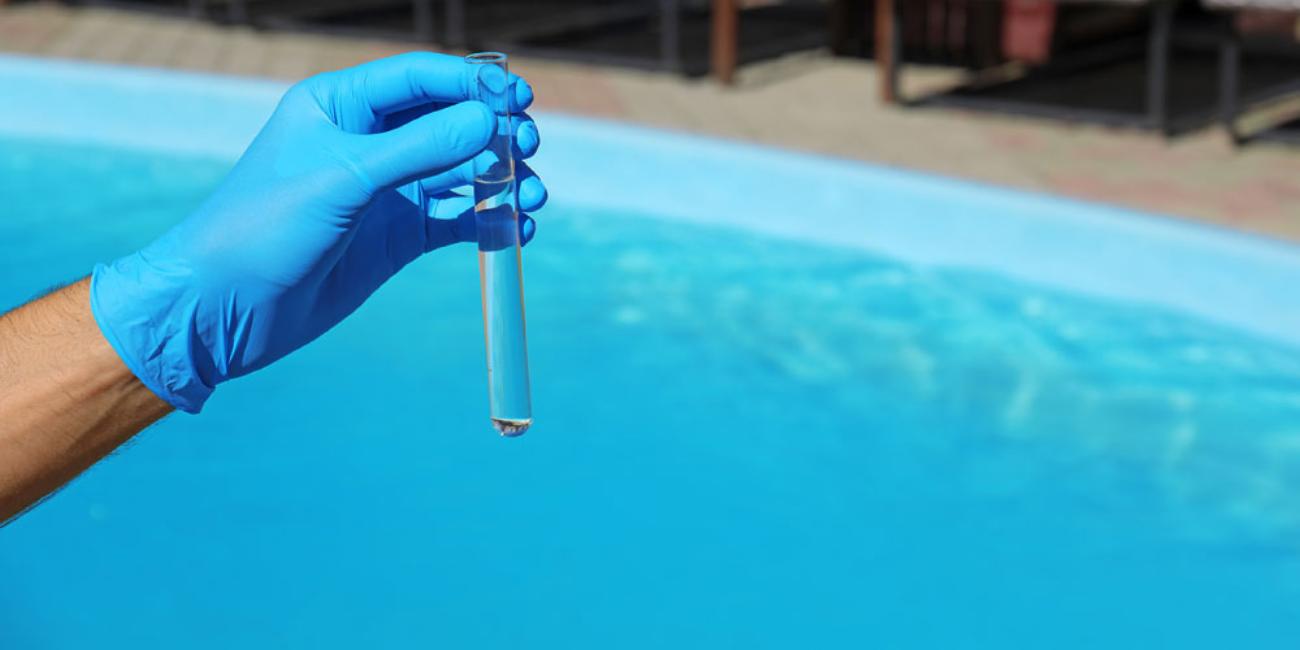
2. Total alkalinity
Since pH levels are easily affected by external factors, a moderator that keeps them more stable is essential for preventing drastic fluctuations. This is what total alkalinity is all about! Your pool water’s ideal alkalinity level is 100-150ppm.
Remember to always adjust total alkalinity levels first, before balancing your pool’s pH levels, since alkalinity works as a “pH protector” for the water. For balancing alkalinity levels, you can use the same chemicals you use for your water’s pH levels – Soda Ash and Dry Acid!
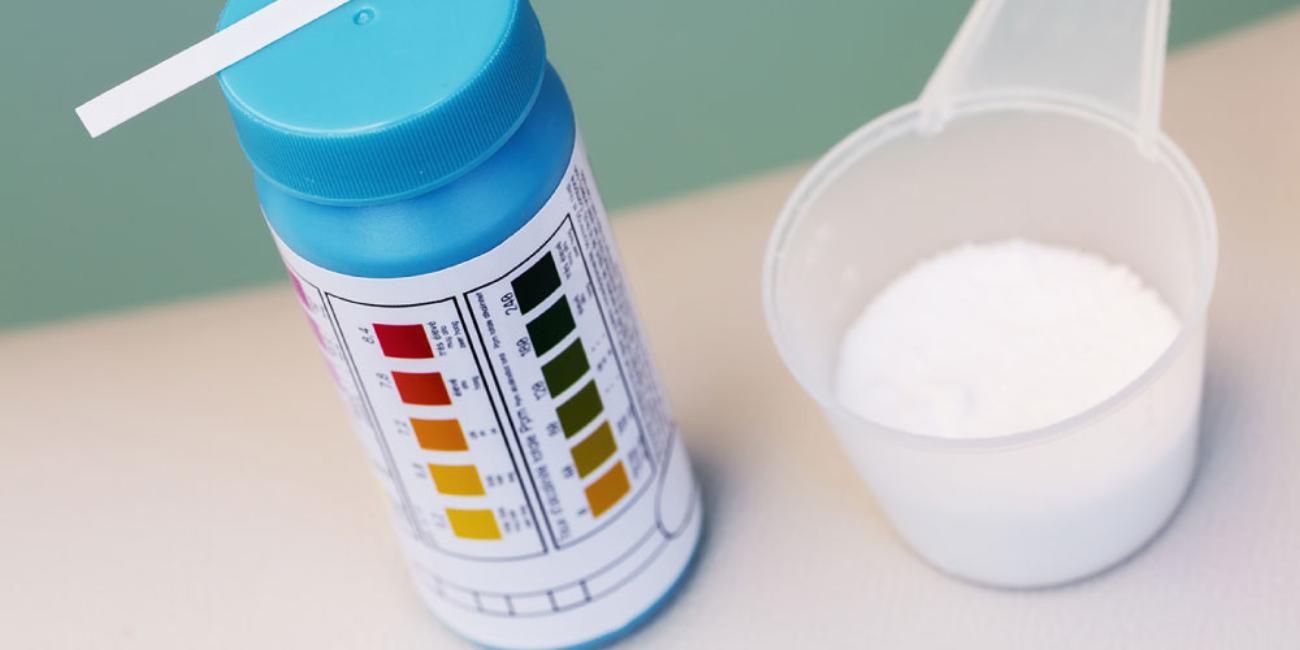
3. Chlorine level
Chlorine is by far the most popular pool sanitizer! It’s effective – and cost effective. It will keep your pool clean from bacteria, viruses and algae! Your pool water’s ideal chlorine level is 1-3ppm.
Chlorine comes in various forms – liquid, tablets, sticks and granules!
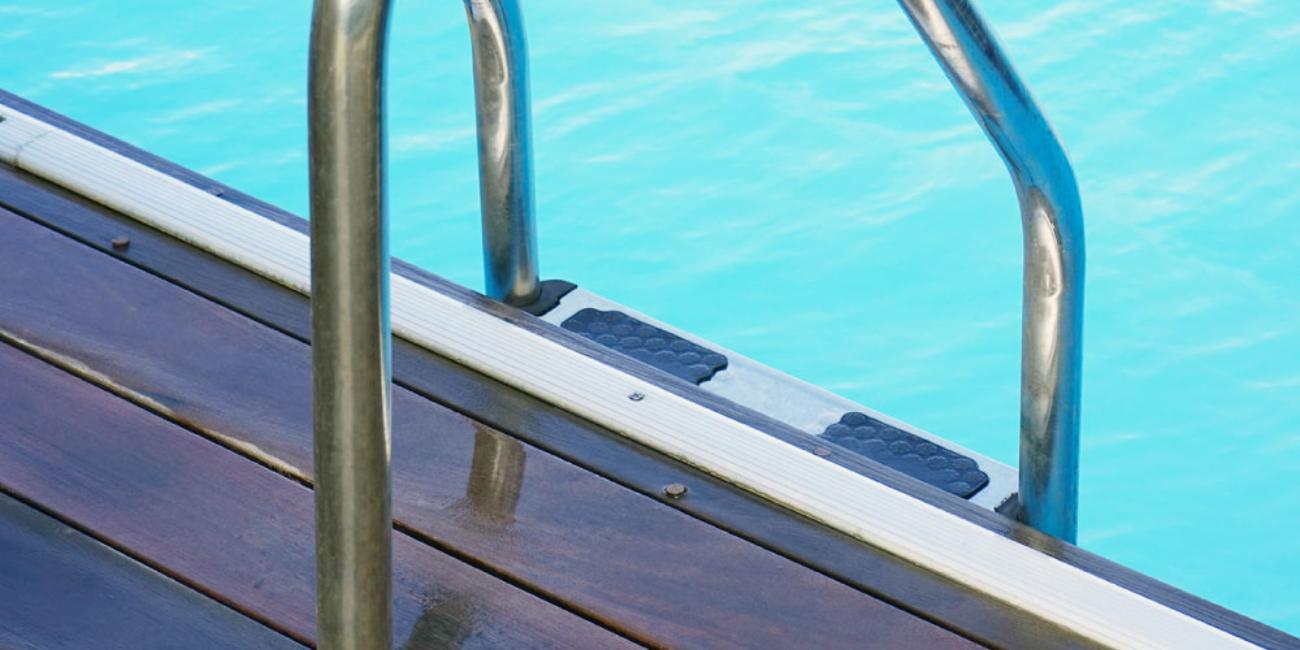
4. Calcium hardness
Calcium hardness measures how hard or soft the water is. Your pool water’s ideal level for calcium hardness is 150-400ppm, depending on the pool’s building materials.
Anything higher or lower can harm the pool’s equipment and affect the water quality. The right chemicals and regular testing will help you keep the calcium hardness level just right for your pool water!
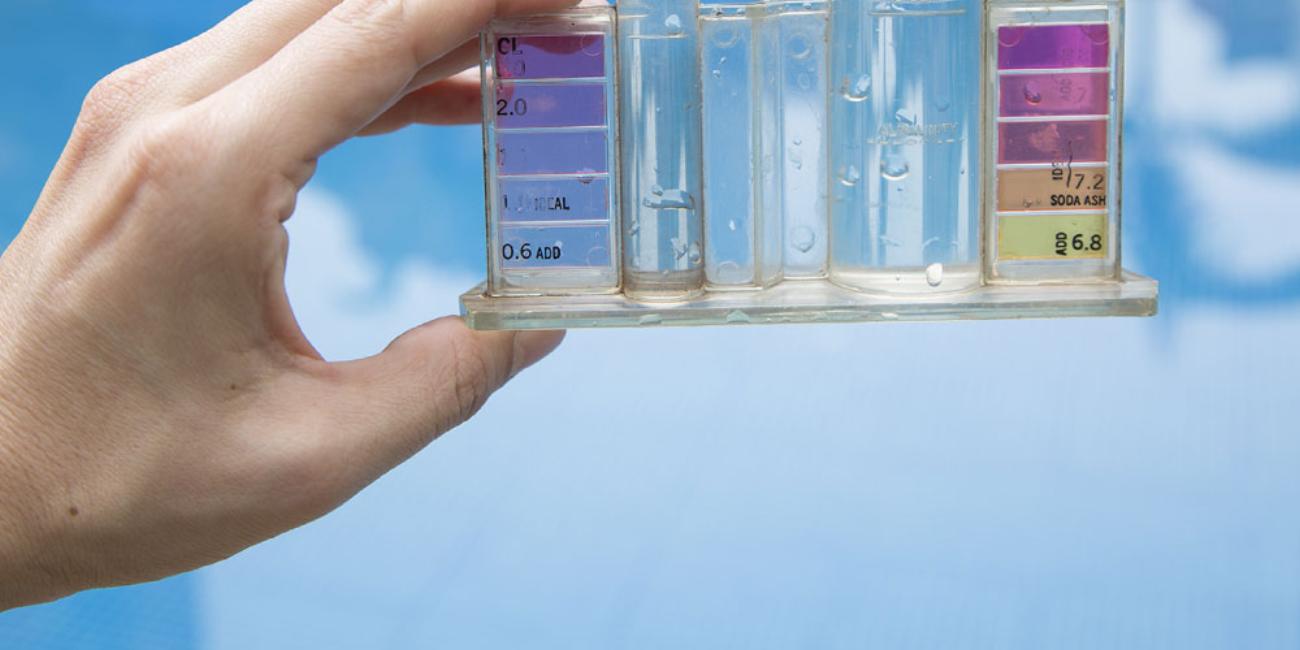
5. Algaecide
Although chlorine usually keeps your pool free from algae, an algaecide acts as your backup when chlorine levels are unbalanced and algae starts to spread.
Experts suggest using your algaecide after a shock treatment – i.e. super-chlorinating the pool with a high dosage of chlorine all at once. This treatment is an important part of your pool maintenance routine and helps keeping the water clear and clean!
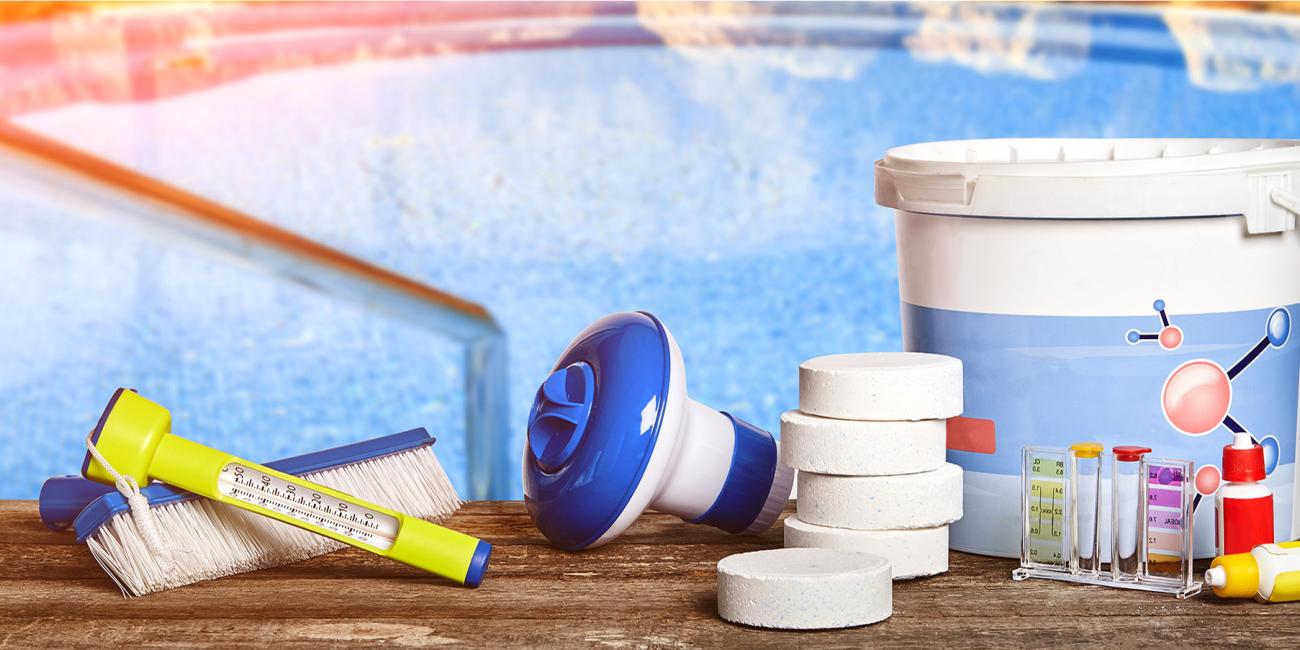
6. Extra tips
How often should I test my pool’s water?
Experts recommend testing the water at least once a week.
What if I have a salt-water pool?
Find salt for your pool here!
What if I have a small above ground pool?
This mini pool kit is ideal for your above ground pool.
What about other pool maintenance equipment, such as a cleaning robot?
Easy! Find your pool cleaning robot here and all you need for your pool maintenance here!
Enjoy your swims!

